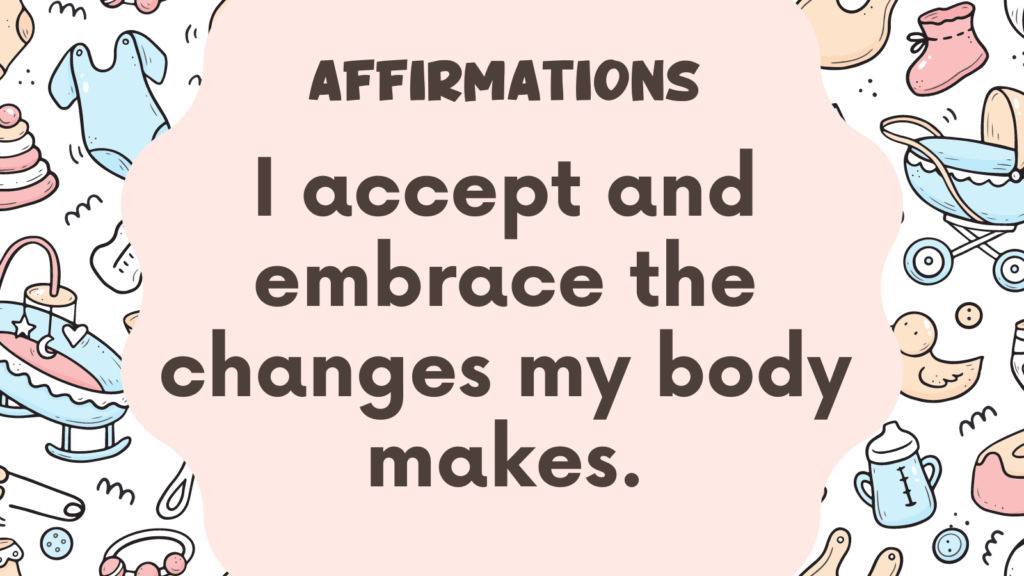In this post, you’re going to learn how to relieve neck pain during pregnancy.
What Causes Neck Pain During Pregnancy?
Several factors can contribute to neck pain during pregnancy. Here are a few common causes:
1. Hormonal changes
During pregnancy, the body releases hormones like relaxin, which loosen the ligaments and joints to prepare for childbirth.
This can lead to instability in the neck and spine, resulting in pain.
2. Weight gain
As pregnancy progresses, the growing uterus and increased breast size can put extra weight on the neck and shoulders, leading to muscle strain and discomfort.
3. Changes in posture
As the baby grows, a pregnant woman’s center of gravity shifts forward, causing her to adjust her posture.
This adjustment may lead to a rounded upper back, forward head posture, and increased stress on the neck muscles.
Related: Best 70 Pregnancy Hacks (+Products Recommendation)
4. Stress and tension
Pregnancy can bring about stress and anxiety, which can contribute to muscle tension in the neck and shoulders, leading to pain and discomfort.
5. Sleeping position
Many pregnant women find it challenging to sleep comfortably, leading to poor sleeping positions that strain the neck muscles or cause awkward neck angles.
6. Existing conditions
Pre-existing conditions such as cervical disk herniation, degenerative joint disease, or muscle imbalances can be exacerbated during pregnancy, leading to neck pain.
It is important to seek medical advice if you experience severe or persistent neck pain, as it could be a sign of a more serious issue.
Your healthcare provider can provide a proper diagnosis, recommend appropriate treatments, and offer guidance on managing neck pain during pregnancy.
Related: Best 7 Pregnancy Self Care Products
How to Relieve Neck Pain During Pregnancy?
Here are some tips to help relieve neck pain:
1. Maintain good posture
By sitting and standing up straight, you can help alleviate strain on your neck muscles and reduce pain.
It is essential to keep your shoulders relaxed and avoid slouching or hunching forward.
You can practice good posture by imagining a string pulling your head up towards the ceiling, aligning your spine properly.
2. Use a supportive pillow
A supportive pillow is designed to provide adequate support to the neck and head, promoting proper alignment of the spine.
Look for a pillow that is specifically designed for pregnancy, as it will take into consideration the changing shape of your body.
These pillows often have a curved shape to support your belly and accommodate your growing bump.
Additionally, they are made from comfortable and hypoallergenic materials, ensuring a good night’s sleep.
Remember to choose a pillow that suits your specific needs and preferences, as different styles and materials work better for different individuals.
Related: Best Pregnancy Resources (Information, Apps, Books, Podcasts)
3. Apply heat or cold therapy
Applying a warm compress or using a heating pad for 15-20 minutes several times a day can help relax tense muscles.
Alternatively, you can also use an ice pack wrapped in a cloth for 10-15 minutes to reduce inflammation.
4. Gentle stretching exercises
One simple exercise is to gently tilt your head to one side, bringing your ear towards your shoulder, and holding the position for a few seconds. Repeat on the other side.
Another helpful stretch is to slowly roll your shoulders in a circular motion, first in a forward direction and then in a backward direction.
These exercises can help to release tension in the neck muscles and provide some relief.
It’s important to remember to breathe deeply and relax while performing these stretches.
5. Practice relaxation techniques
Deep breathing exercises, guided imagery, and progressive muscle relaxation can help calm both the mind and body, reducing muscle tension in the neck area.
Taking a few minutes each day to sit or lie down in a quiet space and focus on deep, slow breaths can be incredibly soothing.
Additionally, visualizing peaceful scenes or engaging in gentle stretching exercises while focusing on releasing tension can provide relief.
Related: How To Use A Pregnancy Pillow?
6. Seek professional help
If the pain persists or intensifies, it is advisable to consult with a healthcare provider or prenatal chiropractor who can offer appropriate guidance, exercises, or treatments tailored to your specific condition.
Conclusion
Experiencing neck pain during pregnancy is common due to the changes in posture and increased stress on the body.
Remember to always listen to your body and take breaks when needed.
If the pain becomes severe or is accompanied by other concerning symptoms, it’s important to seek medical attention promptly.




